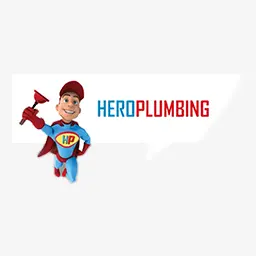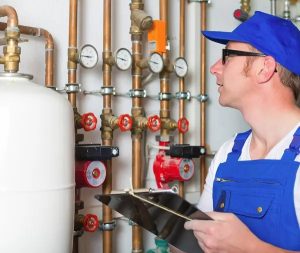Plumbing Maintenance
Sometimes a plumbing issue is simply too big for you to handle. Preparing for a plumber visit can ensure that your problem is dealt with efficiently and quickly, resulting in a lesser bill once the plumber has left. Whether it’s an overflowing drain, a broken water heater, water softener needs, or something else, your plumbing professional will fix such issues in no time.
Tips On Preparing For A Plumber Visit
Pay attention to the situation
When your sleep is being disrupted, the leaking mixer tap in your ensuite bathroom that keeps you up at 3 a.m. can seem like an emergency plumbing situation. However, it might be good to take a step back and consider whether you can postpone the minor issues. After-hours plumbing services are often charged at a higher fee by most plumbers. The cost of a plumber visit will almost always be higher on nights, weekends, and holidays, so do some research before calling.
While you’re looking up information, make sure you understand how hourly rates work—knowing whether the time starts counting when the plumber leaves the shop or when they arrive at your home. This might also influence your decision. Knowing the difference in billing can help you decide if you can wait till the morning, which may be preferable in some cases.
Check for other repair needs
If you’ve decided to hire a plumbing repair service, it’s a good idea to double-check all of your pipes, toilets, and faucets before hiring a plumber to do just one plumbing repair. If several issues need to be addressed simultaneously, it may be more cost-effective to tell your plumber all of them at once.
Mostly, a significant portion of the plumber visit you’re paying for is spent traveling to/from your house. You can avoid paying several trip charges if you can combine several plumbing repairs into one trip. Once you’ve determined if there are multiple issues that you’d like the plumber to look into, you can organise them all into a list so the plumber can quickly and efficiently handle the problems.
Provide the plumber with relevant information
When you first call the plumber, make sure to clarify everything that’s going on. Don’t just tell them about the unusual noise your toilet is making. Tell them how long it’s been going on, where it’s coming from, and anything else that seems relevant. You don’t have to be a qualified professional; however, it’s good to let them know if you have tried any DIY plumbing tactics or if the fixture has previously caused you problems. The more you explain before they arrive, the better prepared they will be to deal with the situation.
Look for the main shut-off valve
A skilled plumber will begin their conversation with you by inquiring about the location of your main shut-off valve. This crucial component of your home’s plumbing system needs to be identified.
The mainline valve prevents your home from being flooded by the city’s full main pressure. You’ll have quite the challenge on your hands if you have a leak in your water line and your mainline valve doesn’t operate properly.
Your plumber should ask you to show them where your main line repair valve is when they arrive. They will assist you in finding it if you do not know where it is. Your plumber will also ask you to test it by turning it on and off to ensure that you can turn it off in the event of an emergency. If not turned at least twice a year, many valves will seize.
Organise the working area
Your plumber would appreciate it if the space where he will be working is as straightforward as possible, whether under a kitchen or bathroom sink. With bottles of chemicals and other supplies in the way, it’s challenging to repair piping or identify a leak.
If you have a minor or significant leak in your basement, you should clear the area around the leak to make it easier to repair the problem.
Clean the toilet before the appointment
Within a week, plumbers respond to many toilet calls, and surprisingly, few homeowners focus on drain cleaning the toilet before the plumber arrives. It’s reasonable that a toilet isn’t clean if it’s blocked and overflowing. But with any other toilet repair, having a clean toilet with unblocked sewer lines to work on is highly helpful. It can be challenging to have their head near faecal waste and other unpleasantness.
Remove snow and ice in winter
If you reside in a relatively cold country like Canada, for instance, snow and ice are a big part of your daily life throughout the winter. A cleaned and salted walkway to your home is much appreciated by plumbers (and any other service personnel).
They frequently have a large bag of tools and equipment with them, which might be unbalanced even in the best of circumstances. Before a plumber visits, shovel and salt your walkway and keep it clear of bikes, garden tools, and other debris during other seasons of the year.
Ensure the safety of your pets
Everyone adores animals, but you need to keep them away from the working space. Yes, it is delightful to be met by a friendly cat or dog at the door. We understand their curiosity about what a plumber is doing in their home, but it’s better to keep pets away from the work area so they don’t stumble on components or tools or get tripped up by a busy and focused specialist.
A plumber will frequently be required to perform some plumbing repair outside. If this is the case, keep a watch on your four-legged companion to ensure that they do not flee.
Hire A Licensed Plumber
You can’t just pick any random plumber off the street who fixes minor water line issues. Certified and professional plumbing repair companies can provide you with the most favourable results. Also, don’t hesitate to inquire about a plumber’s qualifications or certifications in the profession when you contact him.











